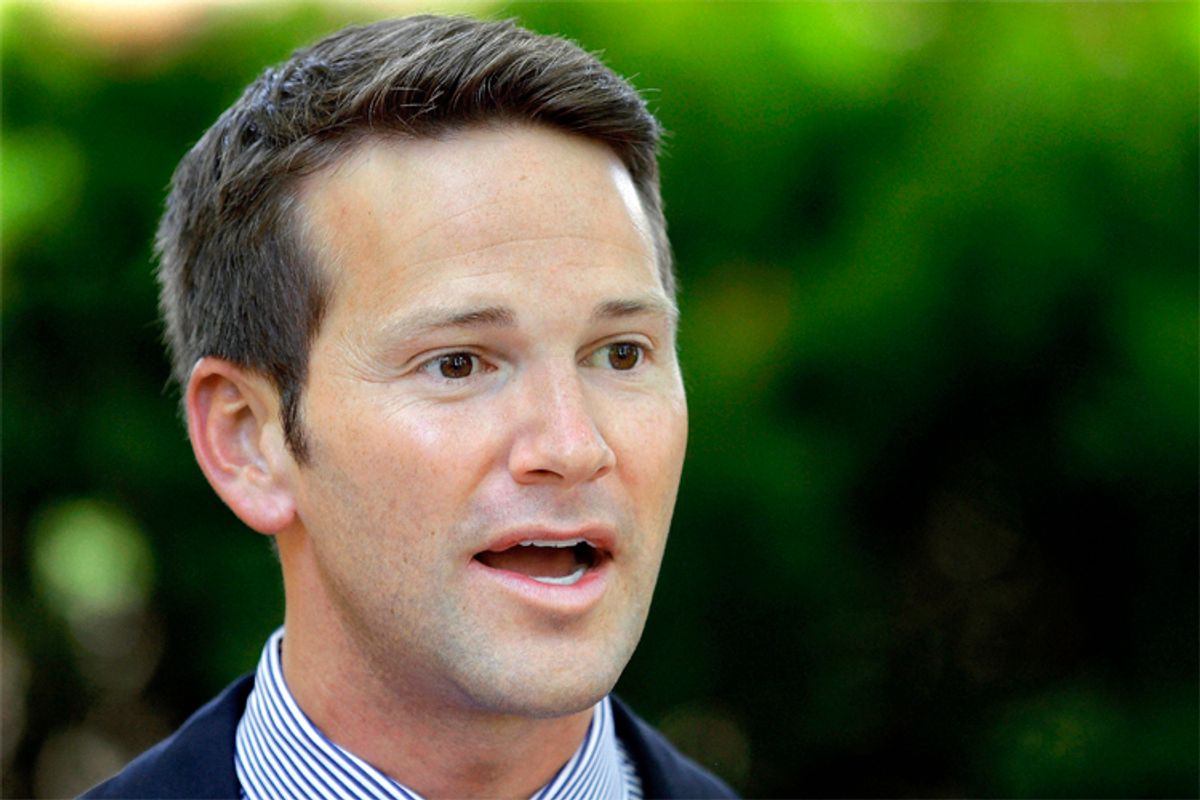The New York Times pulled off a nifty rhetorical trick this morning -- writing a piece about the attempted outing of a U.S. congressman without ever using his name.
The piece, in the Style section for reasons obscure, is structured as a profile of Itay Hod, the journeyman journalist who got attention this month for a Facebook post in which he strongly hinted that a certain U.S. congressman was a closeted gay man. His claim was based on circumstantial evidence including allegations by Hod's friend that he'd seen the congressman showering with a man and allegations that TMZ had, but had not aired, footage of the congressman at gay bars. Hod's post included a link to a slideshow of Illinois Republican Aaron Schock's "gayest Instagram posts."
The Times' profile linked out to several pieces mentioning Schock's name, including my own, for Salon, in which I decried the rush to purportedly "out" a person who seems in photos gay, without even enough proof for Hod to put Schock's name to the story. But the Times never mentioned who the congressman was. It's remarkable: The paper of record felt compelled to remark on rumors and insinuations just to show that they existed -- not because they'd ever indulge in them, of course!
The Times' redaction of Schock's name plays into a bizarre stigma around being gay that persists in the media even now. To falsely be called gay has no longer been slander in the state of New York since May 2012, a sign that in most fields of endeavor, being gay is no longer tantamount to being a second-class citizen. But the Times is unwilling to bring its formidable reporting to bear on the question of Schock's sexuality -- which is certainly of interest given his votes against gay citizens' rights -- instead smirkingly convening a "debate" in its pages in order to communicate juicy scandal to its readers all while standing above it, wincing at just how unseemly it all is.
Had Hod alleged that a U.S. congressman had ethics problems potentially fueled by an uncomfortably close relationship with an opposite-sex lobbyist, the Times would have used that congressman's name; indeed, the paper's 2008 coverage of John McCain's ethical troubles and ties to lobbyist Vicki Iseman did not redact McCain's name in order to protect his privacy because the facts of their relationship were not totally clear.
If the New York Times wants to say that Schock is suspected of being gay, it ought to say it; even if the paper has no personal knowledge as to whether he is or not, it's only a problem to reveal the fact that such talk is gaining currency if being gay is somehow shameful. According to the paper's coverage, to be gay is a secret so scandalous that to allege it, or even to acknowledge that allegations have been made in a less-than-oblique manner, must not be done.
In a column that grows more retrospectively bizarre by the week, David Carr wrote for the Times in late 2013: "Somewhere along the way, what was once a scarlet letter became just another consonant in the personal résumé. And now that gay marriage is a fact of life, a person’s sexual orientation is not only not news, it’s not very interesting." He was writing about Gawker's coverage of Fox News anchor Shepard Smith's dating life and came down in defense of Smith's right to live in private, as no one would or ought to care that Smith was gay.
Today's Times piece makes precisely the opposite point. Its existence indicates the Times believes its readers should or ought to care about the private lives of public figures -- and that a person's sexual orientation is so red-hot-interesting that it's somehow too prurient to be read in the pages of a reputable newspaper. This sort of thinking is what keeps public figures in the closet for their whole lives. It fosters a climate of shame.

Shares